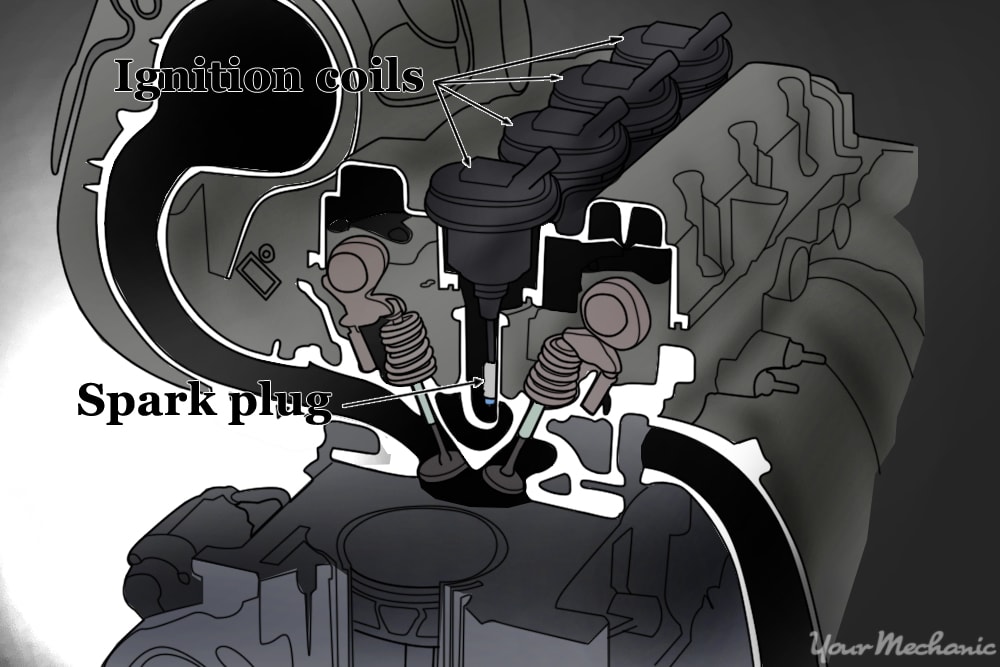

Ignition coils are an electronic engine management component that are a part of the vehicle’s ignition system. The ignition coil functions as an induction coil that converts the vehicle’s 12 volts into the several thousand that are required to jump the spark plug gap and ignite the engine’s air-fuel mixture. Some ignition systems will use one coil to provide the spark for all of the cylinders, however most newer designs use an individual coil for each cylinder.
As the ignition coil is the component responsible for generating the engine spark, any problems with it can quickly lead to engine performance issues. Usually a faulty ignition coil will produce a few symptoms that alert the driver of a potential issue.
1. Engine misfires, rough idle, and loss of power
One of the most common symptoms associated with a faulty ignition coil is engine performance issues. As the ignition coils are among the ignition system's most vital components, an issue can cause spark to be compromised, which can quickly lead to performance issues. Faulty coils may cause the vehicle to experience misfires, a rough idle, a loss in power and acceleration, and a reduction in gas mileage. In some cases the performance issues may even result in the vehicle stalling.
2. Check Engine Light comes on
Another symptom of a potential issue with the vehicle’s ignition coils is an illuminated Check Engine Light. Faulty coils can lead to engine performance issues, particularly misfires, which will trip the computer and set off the Check Engine Light. The Check Engine Light will also be set off if the computer detects an issue with the ignition coil signal or circuit, such as when a coil burns out or shorts. An illuminated Check Engine Light can be caused by a wide variety of issues, so having the computer (scanned for trouble codes)[https://www.yourmechanic.com/services/check-engine-light-is-on-inspection] is highly recommended.
3. Car is not starting
A faulty ignition coil can also lead to a no-start condition. For vehicles that use a single ignition coil as the source of spark for all of the cylinders, a faulty coil will affect the operation of the entire engine. If the coil fails completely, it will leave the engine without spark, which will result in a no spark, no-start condition.
Problems with ignition coils are usually easy to detect as they produce symptoms that will be quite noticeable to the driver. If you suspect that your vehicle’s ignition coils are having an issue, have the vehicle inspected by a professional technician from YourMechanic to determine if any coils need to be replaced.



